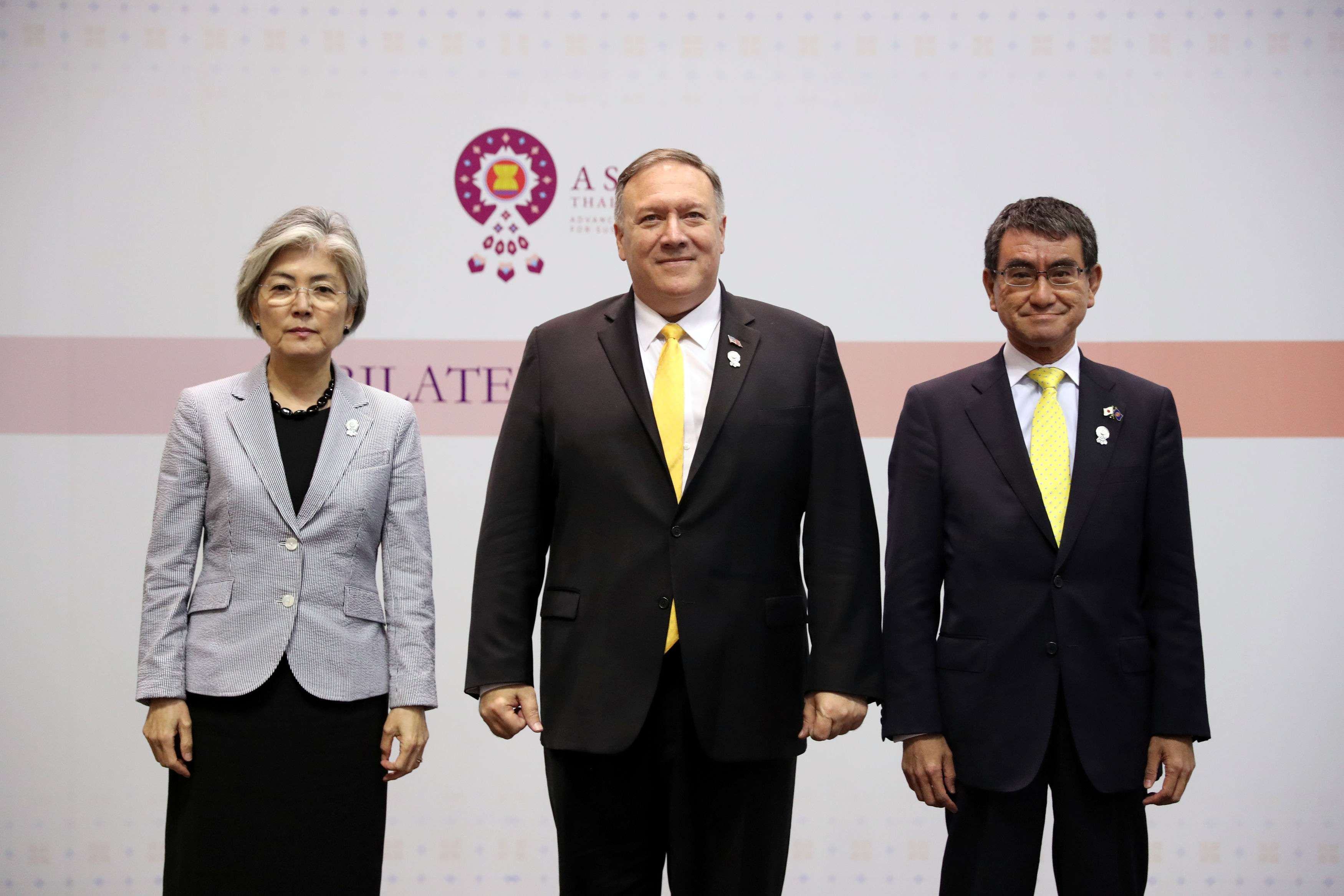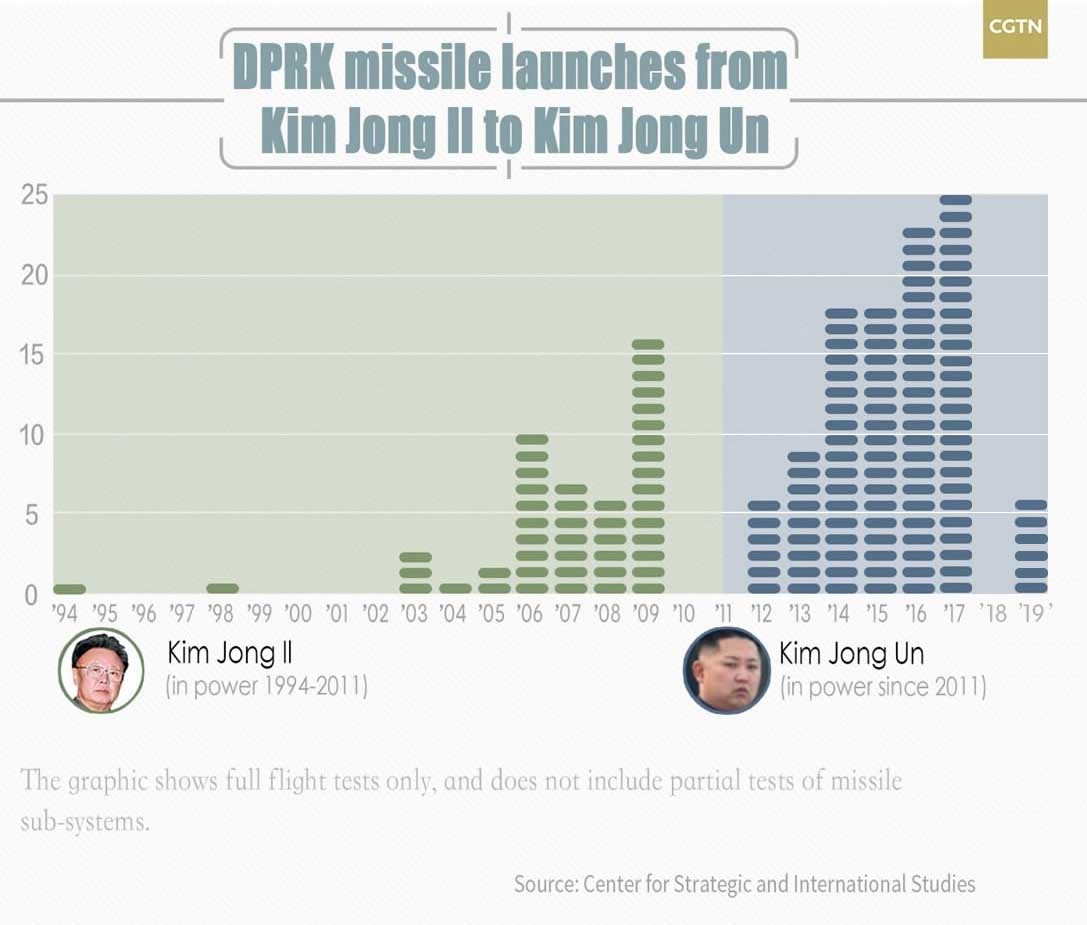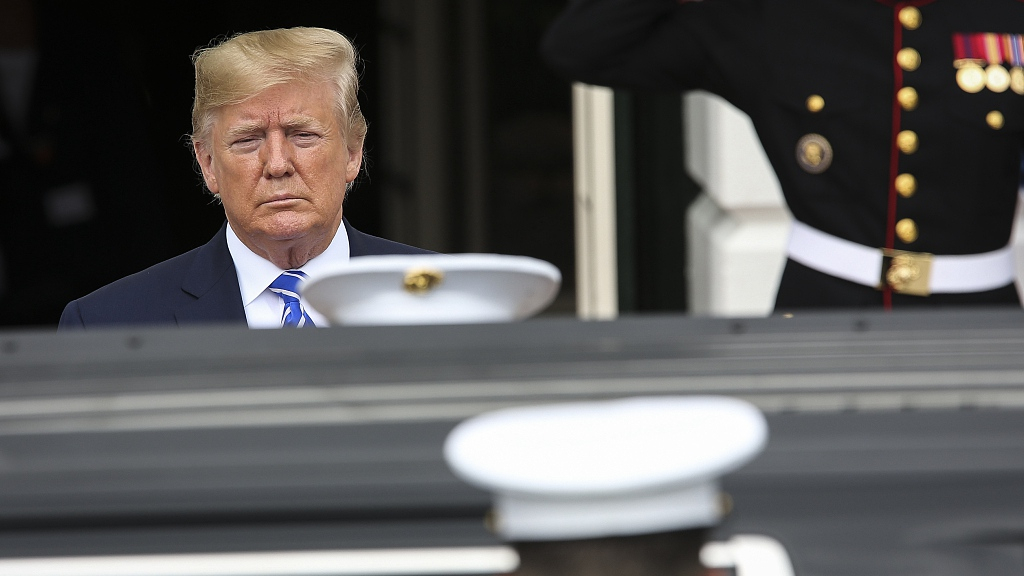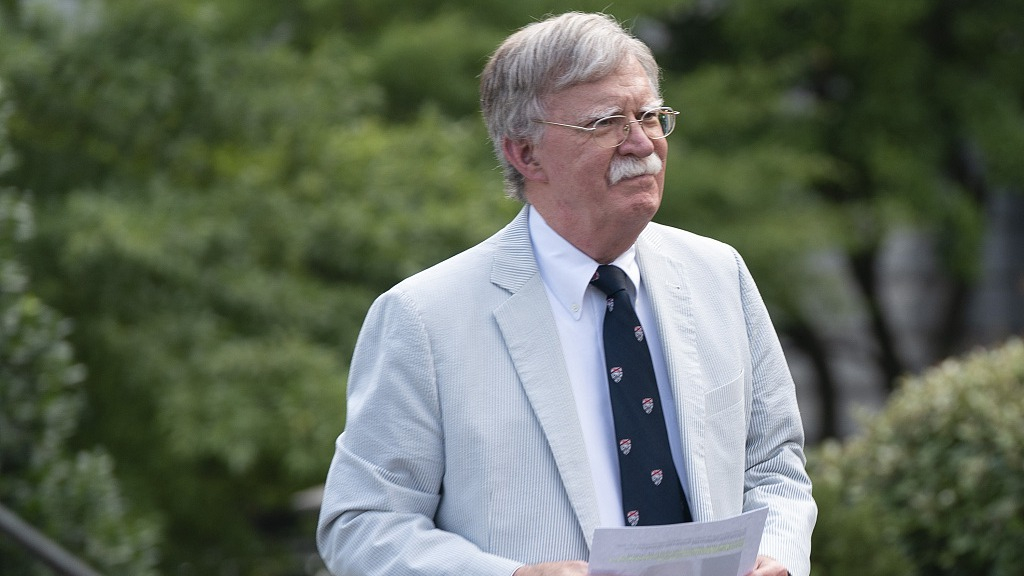Noting that the current situation on the peninsula is in a critical period, Chinese foreign ministry's spokesperson Hua Chunying said the international community expects the DPRK and U.S. to resume working-level consultations as soon as possible.
The latest projectiles launched by the DPRK on Friday appeared to be new short-range ballistic missiles, the Republic of Korea (ROK)'s government said on Friday.
The missiles flew 220 kilometers and reached an altitude of 25 kilometers, the Joint Chiefs of Staff (JCS) in Seoul said.
The projectiles were fired at 2:59 a.m. and 3:23 a.m. local time from Yonghung, South Hamgyong Province, into the East Sea, the JCS said.

The top diplomats of the U.S., ROK and Japan also met trilaterally on the sidelines of an Asian security forum in Bangkok on Friday amid ongoing trade rows between ROK and Japan.
During the meeting, Pompeo expressed the U.S.' concern over Seoul-Tokyo row and urged the two sides to jointly tackle Pyongyang's security challenges and foster a lasting peace on the peninsula.

Trump still open to talks
A U.S. official said U.S. intelligence had detected at least one, and possibly multiple projectiles, that did not pose a threat to North America. U.S. officials said initial information indicated the activity was similar to two other short-range missile tests by Pyongyang in the past eight days.
U.S. President Donald Trump who has been hoping to revive denuclearization talks with the DPRK, played down the launches, saying they were short-range and "very standard" and would not affect his willingness to negotiate with Pyongyang.

Asked at the White House before setting off for a campaign trip to Ohio if he thought Kim was testing him, Trump said the launches did not violate the DPRK leader's promises to him.
"I think it's very much under control, very much under control," he told reporters.
Asked if he could still negotiate with Kim, he replied, "Oh, sure, sure. Because these are short-range missiles. We never discussed that. We discussed nuclear. What we talked about is nuclear. Those are short-range missiles. Sure, and a lot of other countries test that kind of missile also."
Japan: No immediate impact
Japan's Ministry of Defense said on Friday no immediate impact was seen on the nation's security after the new DPRK launch.
UN calls for meaningful talks
Three UN Security Council members – Britain, France and Germany – condemned Pyongyang on Thursday over the spate of tests and called on the DPRK to engage in "meaningful" talks with the United States, saying international sanctions needed to be fully enforced until Pyongyang dismantled its nuclear and ballistic missile programs.
They urged the DPRK to "take concrete steps towards its complete, verifiable and irreversible denuclearization and to engage in meaningful negotiations with the U.S. as agreed between President Trump and Kim Jong Un on June 30."
Their statement came after a closed-door UN Security Council meeting to discuss the previous DPRK launches.
The DPRK fired two short-range ballistic missiles early on Wednesday, only days after it launched two similar missiles on July 25.
"We are monitoring the situation in case of additional launches and maintaining a readiness posture," the ROK's Yonhap News Agency quoted the country's JCS as saying.

Earlier on Thursday, U.S. national security adviser John Bolton told Fox Business Network that the launches since last week did not violate Kim's pledge not to test long-range missiles or nuclear bombs. However, he added, "You have to ask when the real diplomacy is going to begin, when the working-level discussions on denuclearization will begin."
"We've been waiting to hear since June the 30th," he told the network. "We're ready for working-level negotiations. The president's ready, when the time is right, for another summit. Let's hear from North Korea (DPRK)."
Bolton said the ROK and Japan were concerned by the recent launches "because they're within range, we think, of this particular missile."
The DPRK has said the planned military drills could derail dialogue and has also warned of a possible end to its freeze on nuclear and long-range missile tests in place since 2017, which Trump has repeatedly held up as evidence of the success of more than a year of engagement with Kim.
Despite the setbacks, Trump has continued to hail his good relationship with Kim, and some analysts believe Pyongyang will have been emboldened to press more aggressively for U.S. concessions given the U.S. leader's apparent eagerness to hold up his DPRK policy as a success in his 2020 re-election bid.
China welcomes U.S. resumption of working-level dialogue with DPRK
During the meeting with U.S. Secretary of State Mike Pompeo on the sidelines of the ongoing ASEAN meeting in Bangkok on Thursday, Chinese State Councilor and Foreign Minister Wang Yi said China hopes to create an environment and conditions for the resumption of meetings and hopes that the DPRK and U.S. could meet each other halfway.
He also expressed China's support for the consensus reached at the Singapore summit between the U.S. and DPRK leaders, including full denuclearization and the establishment of a peace mechanism on the peninsula.
China hopes that Washington and Pyongyang could achieve these two goals with a phased and synchronized approach, Wang added.
Pompeo said he hoped talks would start soon.
"We stand ready to continue our diplomatic conversation," Pompeo said, adding that he was optimistic that Kim would deploy his team for working-level talks "before too long."













